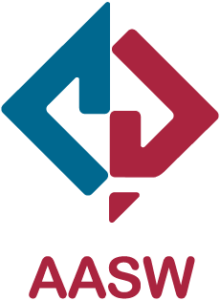Complainants FAQs
- Home
- »
- About AASW
- »
- Ethics & Standards
- »
- Making a Complaint
- »
- Complainants FAQs
Complainants Frequently Asked Questions
Can the Ethics Office assist with the completion of a complaint form?
The AASW Ethics Office is unable to assist with or advise Complainants on what information or details should be included in a complaint form. The Ethics Office can assist Complainants with accessibility issues to complete the forms with the information they provide.
Is submission of a complaint form compulsory?
In order for complaints to be received and reviewed under the ECMP, the AASW Ethics Office requires complaints to be fully submitted through completion of the AASW Ethics Complaints Form.
In completing the form, Complainants declare and confirm they have read and agree with:
- the AASW Privacy Policy,
- Section 6.2.4 of the AASW By-Laws on Ethics 2025, and
- the AASW ECMP Confidentiality Agreement.
The submission of a complaint form is required as Complainants must demonstrate their understanding of:
- the consent they provide for the AASW to share details of their complaint with other parties,
- the fact that their complaint and any attached documents may be sent to the Respondent and any potential witnesses, and
- the permission they provide for the Respondent and any other relevant parties to provide the AASW with information relevant to the complaint as necessary.
Can a complaint form be submitted by a third party?
A complaint form can be submitted by a third party when accompanied by a Third Party Authorisation Form in instances where the Complainant is unable to make the complaint themselves due to:
- being a minor, and/or
- an impairment or incapacity.
Why must the Respondent be an AASW member?
As the self-regulatory body for the social work profession, the AASW is only able to review complaints submitted about member social workers.
The ECMP is underpinned by the AASW By-Laws on Ethics 2025 and in order to review allegations of misconduct, the membership status of the social worker concerned must be confirmed against the jurisdictional parameters set by the AASW By-Laws on Ethics 2025.
What can be submitted as evidence to a complaint?
Complainants can provide supporting information that addresses allegations within the complaint. The information provided must pertain to and address each individual allegation.
Complainants should only include information that is legally able to be shared with the AASW.
Complainants should not include sensitive information such as case notes or information related to third parties.
What happens to a complaint after it has been submitted?
The AASW Ethics Office will provide Complainants with an acknowledgement to confirm receipt and advise that a jurisdictional review of the complaint will be undertaken. Complainants will be notified of the outcome of the review within fifteen (15) business days.
**Please note, should the complaint form be incomplete or unclear, the AASW Ethics Office will contact the Complainant to request additional information. This may result in the jurisdictional review taking longer than fifteen (15) business days.
If the matter falls within the jurisdiction of the AASW By-Laws on Ethics, the alleged misconduct and alleged breaches will be independently reviewed by a Case Reviewer against the AASW Code of Ethics 2020.
What if a complaint is not within AASW jurisdiction?
If a Complaint is not within the AASW By-Laws on Ethics 2025 jurisdiction, the Ethics Office will notify Complainants of this and may suggest alternative complaint bodies for concerns to be raised with.
Once a complaint has been assessed as being within jurisdiction, how long does the AASW ECMP take?
Whilst the Ethics Office aims to review complaint matters as efficiently as possible, the Ethics Office is responsible for the receipt and review of a large volume of complaints. The ECMP is lengthy and dependent on information from several sources and the meeting schedule of the Ethics Council.
The Ethics Office is unable to provide an exact timeframe on the completion of a complaint review; each complaint is reviewed with due diligence and can take approximately 12-18 months to complete.
What are the stages of the ECMP process?
The ECMP consists of the following stages:
Stage 1: AASW Ethics Office Review
Stage 2: Case Review
Stage 3: Ethics Council Review & Decision
Stage 4: Formal Resolution (see possible outcomes in next question below below)
Stage 5: Ethics Council Review
Stage 6: AASW Board of Directors Decision (if applicable).
What outcomes can be reached with a complaint?
It is not possible for the AASW Ethics Office to determine what the outcome of a complaint will be, however, possible outcomes of the ECMP include:
Option A: Informal Resolution (Conciliation or Mediation)
Option B: Formal Resolution (Hearing Panel and if applicable, Appeal Panel).
Where are enquiries about complaints submitted to?
Please submit enquiries to the AASW Ethics Office by writing to: [email protected]

